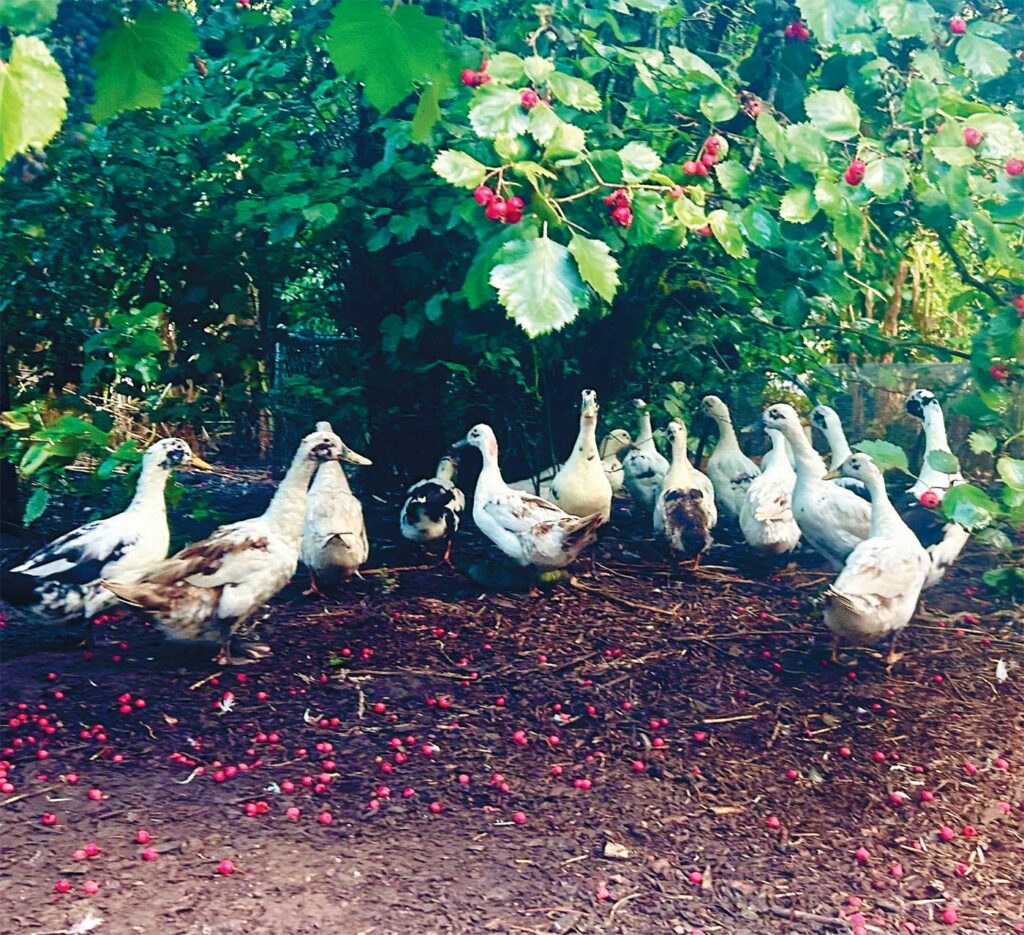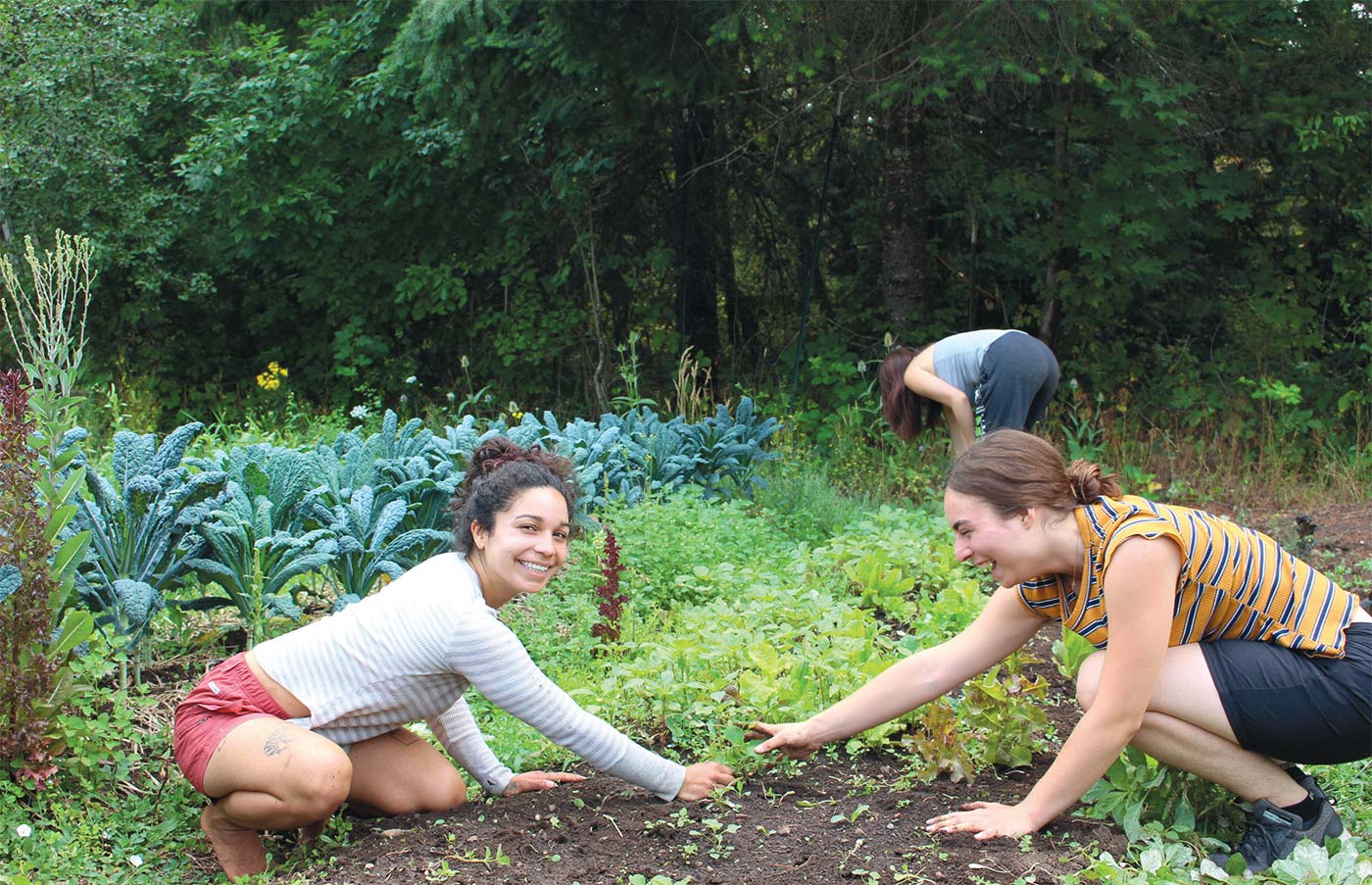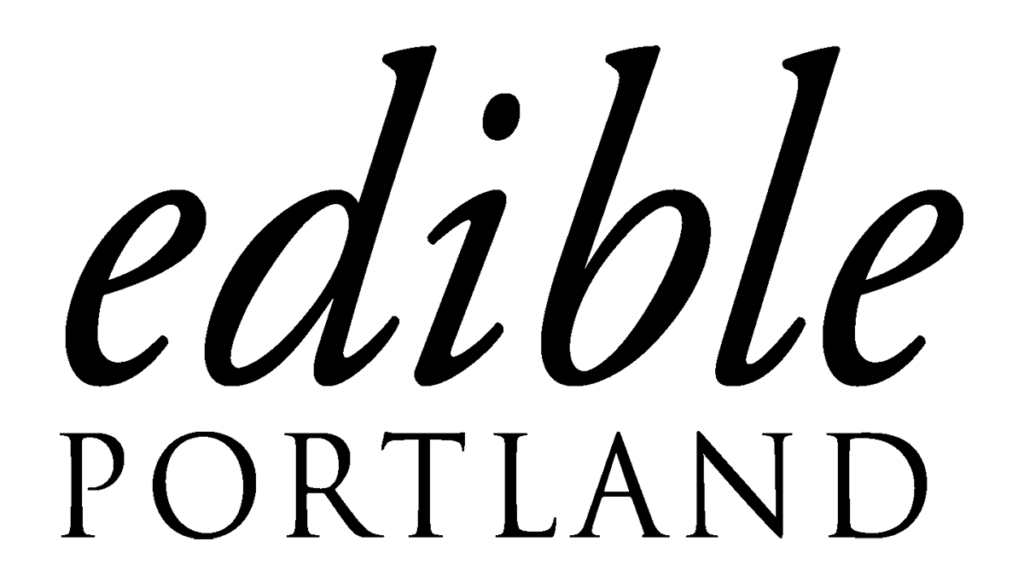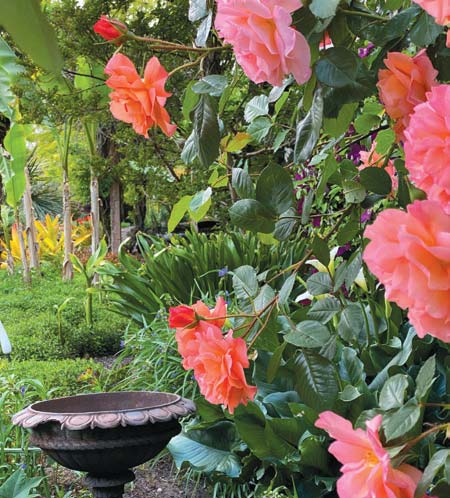Come For a Meal, Stay For a Season

Images by Lost Valley Education Center
Small round green and purple grapes hung from the vines as brown and cream-colored ducks quacked and fluttered around my feet. So much color! So much noise! I was a guest on the land of the Lost Valley Education Center, an intentional community and ecovillage located on 87 acres of mostly forested land in Dexter, Oregon, approximately 18 miles southeast of Eugene. Khyla Allis, the gentle and tender-hearted Garden Coordinator, led me along Lost Valley’s paths. The sun was shining, and it was a lovely day to explore the gardens’ treasures. As we stood between the Meadow Garden and the Sun Garden, she explained that one of permaculture’s most important principles is simply observing.
Be still. Observe the wildflowers blowing in the wind, the bees buzzing around the leaves of mint and basil, the thimbleberries ripening in the sunlight. These observations lead to the discovery of natural rhythms. “Permaculture is a deep connection to the transcendent patterns of nature,” Allis said. Understanding these patterns of the salmon and the bear, the stones in the river, the beaver and the bees, enables us to plant and gather sustainably in ways that honor the land and the animals.
Those who work with Allis in the Sun Garden are trying something new there, a rewilding of sorts—letting the garden grow as it pleases. It needs less care and tending to produce golden raspberries, goumi berries, and autumn olives. The gardeners plant various annuals mixed in with perennials such as wildflowers, herbs, and also trees such as pear and apple. And from what I saw and smelled blooming all around me, it was clear that both gardens were well-loved and cared for.
The next stop was over the trickling stream to the Creek Garden, where bright red peppers grow among other vegetables and herbs. I asked about a lavender-colored plant, assuming it was indeed lavender. Allis reached down to pluck a little sample. “This is basil, Tulsi Basil,” she corrected me. We both smelled the magnificent little herb and compared it to Thai Basil, finding that the Tulsi smells sweeter and is more memorable.
We talked about the soil, its health benefits when you participate in gardening, how it contains so many anti-depressant properties, and how it produces plants and vegetables that are more nourishing and flavorful. “The health of our gut and the microbiomes that live there directly mirrors the health of the soil,” Allis continued.
Another beautiful thing about Lost Valley Education Center? In addition to being a learning center, it offers Meadowsong Ecovillage, an intentional community that welcomes anyone curious about permaculture, sustainable living, living in a community, or just moving through the world in a gentler way. Young, old, young at heart, no matter what your life story is, you are welcome.

This November, Lost Valley will be hosting a Community Experience Week. Allis shared with me that one of her favorite classes to teach during this week is about medicinal herbs. During the last class, she and the students went on a plant walk and partook in an honorable harvest where they gathered native Hawthorne, which they then used to make a syrup with local honey.
Lost Valley also offers Weekend Permaculture Design Courses throughout the year—the fall session, which will take place from October 5 to December 15, is currently open for enrollment. The principles and skills taught in these classes are invaluable, especially for those aspiring to plant a garden in their own yard. Participants learn about such topics as tea composting, worms, and native plant selection, and experience the natural beauty of the Center during shared meals.
Lost Valley is open all year round, so come visit, chat, and select some fruits and vegetables to take home. Fancy some native berries? There are more kinds of berries at Lost Valley than you can count on all fingers. From the soft and simple thimbleberry to the plump and precious gooseberry, you will be spoilt for choice once you’re here. This fall, Allis will be hosting a farmer’s market and a dinner prepared with fresh fruits and vegetables handpicked from the trees and the seasonal gardens, so be sure to come with an empty belly and an open heart.
The Lost Valley community is also dedicated to creating a welcoming and hospitable environment for the animals—an environment where they feel safe and free. Bears, cougars, and deer benefit from the deep respect for nature that’s practiced here. At Lost Valley Education Center, wild animals, plants, and humans all live interdependently. The land is a treasure for all, and the land is their home

